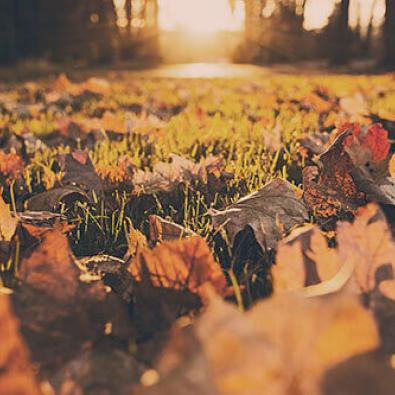
Winter Lawn Care Tips
Winter lawn care tips might seem unimportant, especially if you live in a snow prominent state like Virginia, where the annual lawn care demand is less than 2% in December. Even though the need for lawn care is low in the cold months, you still want to winterize your lawn to ensure it’s health and prepare for a lush green spring.
If you are able, prepare your lawn in the fall ahead of the frostbitten mornings. Once winter has set, there is limited work required on your end until it starts to thaw in the spring.
So, prior to that first freeze of the season–if it hasn’t happened already, you’ll want to squeeze in a few maintenance tips. If the frost has already gotten to you, keep these notes in mind for seasonal care!

1. Remove Leaves and Debris
Firstly, if you are able, remove any leaves or debris. Rake up anything that is currently settling on top of your lawn. We often forget and leave that there, but then it gets overlooked and if there is snowfall or ice, that area becomes thin and dead by spring. The same happens if toys or garden tools are left to rest on the lawn, so pick up everything one last time before winter comes.

2. Mow the Lawn
Mow your lawn one last time. If you are able, start gradually lowering your cutting base each time you head out in the fall so that the shock of cutting it short before winter is reduced. If the lawn is left large and untended to, it will quickly become a home for burrowing animals like mice who will create dead spots where they nest and pull up large swaths of grass in the process. So, cut it short once and for all, then wait until spring.

3. Fertilize
Near the beginning of winter, you want to fertilize your lawn using a winter fertilizer in particular. During the summer months, most grass will lose a lot of its nutrients and you want to replace that before the weather turns foul, so that the grass has time to feed its roots.

4. Avoid Additional Traffic
When your grass is brown and wet, it is easy for people to forget that foot traffic is not to be encouraged. Grass is resilient, sure, but if you wear it out by walking over it regularly—especially in places you wouldn’t normally walk in spring or summer—then it may not fare as well next year.
To help out with this, keep the sidewalk and front path clear of any snow, ice, or mud so that your guests and family will stick to the road more traveled, and not the grass. Avoid parking anything on the grass even during the winter. Just the same as it would kill the grass to park your truck on it during the summer, it will hurt it during the winter too.
Once these final preparations are done, you can settle in for a long, beautiful winter without much on your “garden to do” list.
